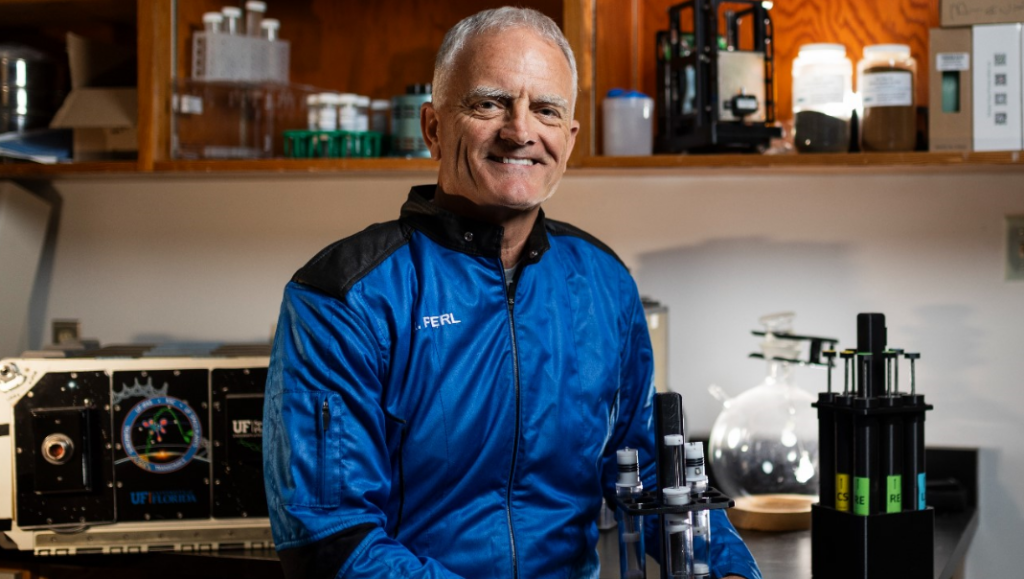
UF’s Rob Ferl Prepares to Launch into Space
What does the adaptation process look like for plants in space?
That’s the question the University of Florida Institute of Food and Agricultural Sciences (UF/IFAS) hopes to answer with a novel space-based experiment happening Thursday at 9 a.m. EST when a UF/IFAS horticultural sciences researcher launches with his experiment into suborbital space on a Blue Origin New Shepard rocket.
Rob Ferl, Ph.D., the University of Florida Astraeus Space Institute director, will fly in the Blue Origin craft and perform the experiment himself. The experiment builds on prior research that showed a type of plant – Arabidopsis thaliana – can detect that it is in space and then change how its genes are expressed.
“This moment is a milestone not just for the University of Florida and the Astraeus Space Institute but for an entire community of scientists who can now consider experiments in space that might have previously been viewed as impossible,” said UF Interim President Kent Fuchs. “I look forward to cheering Rob on during Thursday’s mission and to watching him make history yet again.”
This experiment will determine which genes turn on and off at various stages of flight. Although much is known about how plants respond to living in spaceflight environments, like the International Space Station, researchers know less about how plants respond molecularly as they travel to space. The experiment will provide new insights into how plants adjust their gene expression as they transition from Earth to space.
One day, plants might be an essential part of space exploration as food and air scrubbers, and understanding how they react to a space environment is the first step toward learning how to effectively grow them there.
“We envision plants will keep us alive in space or on the moon,” said Ferl, who is also assistant vice president for UF Research. “What does it take to adapt to living in space? We’d like to know.”